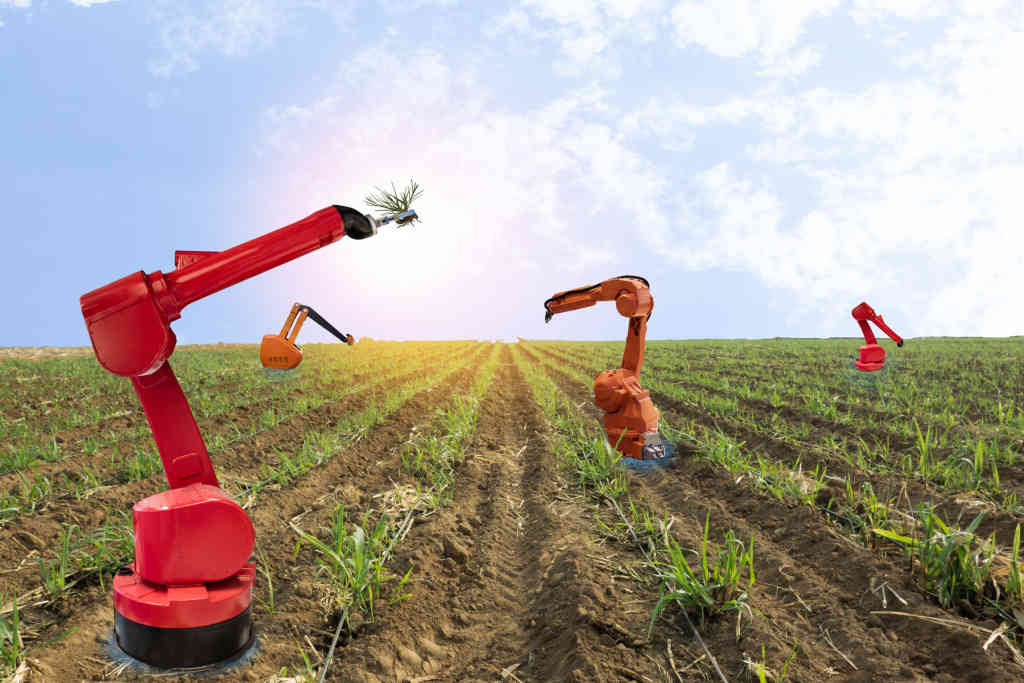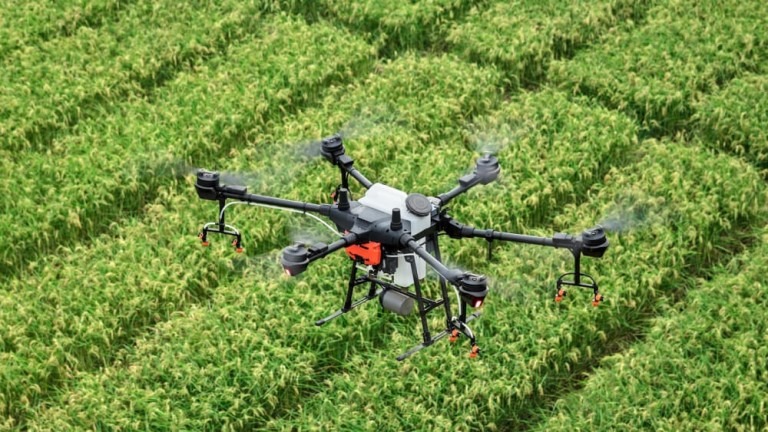

Smart farming based on IoT solutions improves the entire farming systemmonitoring the field in real-time. Smart farming based on IoT technology enables growers and farmers to reduce waste, increase productivity, vary the amount of fertilizer used, the number of trips madeagricultural vehicles and the efficient use of resources such as water and electricity. Predictive analytics and intelligent agriculture crop forecasting play a key role in helping farmers decide plans for crop production, crop storage, marketing techniques and risk management.
Precision farming, which uses the IoT, relies on data collected from various sensors in the field to help farmers allocate sufficient resources to a plant. Smart farming supports sustainable and cost-effective agriculturecombining navigation, satellite and earth observation data to make it easier for farmers to make informed decisions about how they grow. In the past, farmers used a smart farming approach to collect data and then make informed decisions from that data.
IoT-based smart farming will improve the entire farming systemmonitoring the field in real-time. Smart farming based on IoT solutions will enable growers and farmers to reduce waste and increase productivityvarying the amount of fertiliser used, the number of journeys madeagricultural vehicles and the efficient use of resources such as water and electricity.
Smart farming is a management concept based on providing the agricultural industry with the infrastructure to use advanced technologies such as big data, the cloud and the Internet of Things (IoT) to track, monitor, automate and analyze operations. Smart farming is an emerging concept that refers to the management of farms that use modern information and communication technologies to increase the quantity and quality of the products while optimizing the human resources needed. While the name may sound fanciful and futuristic, smart farming.
Smart farming is a management concept based on providing the agricultural industry with the infrastructure to use advanced technologies such as big data, the cloud and the Internet of Things (IoT) to track, monitor, automate and analyze operations. Smart farming is an emerging concept that refers to the management of farms that use modern information and communication technologies to increase the quantity and quality of the products while optimizing the human resources needed. While the name may sound fanciful and futuristic, smart farming refers to precision farming, which uses technology to collect data and create smart farms.
The driving force behind smart farming is IoT solutions, the networking of intelligent machines and sensors that are integrated into farms to make agricultural processes data-driven and data-capable.
Smart farming is becoming more common for farmers, and high-tech farms are becoming the norm thanks to agricultural drones and sensors. The Internet of Things makes it possible for agriculture, especially agriculture, to be supporteddata, leading to efficient and timely production and management of farms while reducing their environmental impact. Here we outline IoT applications in agriculture and how the Internet of Things can help farmers meet global food needs in the coming years.

New smart farming applications based on IoT technology help the agriculture industry to reduce waste and increase productivity. To meet the growing needs of a growing population and maximize returns from their farms, many farmers are relying on new technologies driventhe Internet of Things.
Farmers can use smart greenhouses and plant monitoring systems to leverage insights from Big Data analysis to regulate spraying, irrigation, lighting, temperature, humidity and more. These techniques help make precision farming what it is: a process that uses satellite imagery and other technologies such as sensors to monitor and record data to increase production and production while minimizing costs and conserving resources. CropMetrics is a precision irrigation company founded in 2009farmers to develop intelligent cultivation solutions to allow growers to control irrigation of their crops.
Intelligent sensors monitor every aspect of daily work, and IoT technology in agriculture enables farmers to automate the collection of real-time data to increase production volume, reduce costs, manage costs and improve the overall efficiency of many different aspects of agriculture. In the case of precision farming, intelligent farming techniques allow farmers to monitor the needs of each animal and adjust their diet to prevent disease and improve herd health. Farmers can make informed decisions about all aspects of their work, from livestock farming to crop production, using IoT sensors to measure environmental, machinery and metrics.
Smart farming uses sensors and big data to predict and make decisions that increase agricultural productivity. Smart farming has great potential for efficiency, productivity, precision and sustainability. It makes agriculture more profitable and feeds a growing global population. It enables the development of sophisticated and innovative applications that benefit farmers and the agricultural sector.
Although the name may sound fanciful and futuristic, smart farming refers to precision farming, which uses technology to collect data and create smart farms. Smart farming is becoming increasingly commonplace for farmers and high-tech farms are becoming standard thanks to agricultural drones and sensors.

